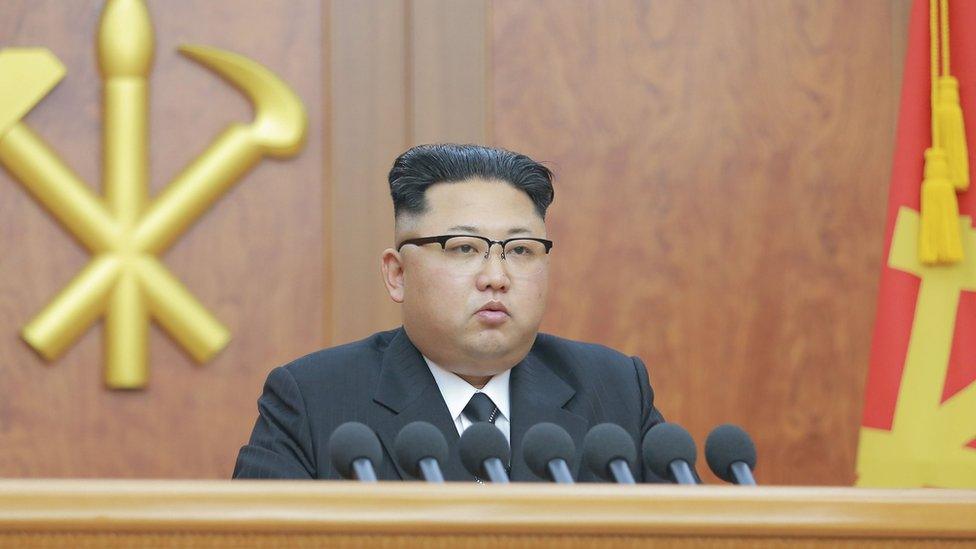North Korea nuclear test: Why now and why does it matter?
- Published
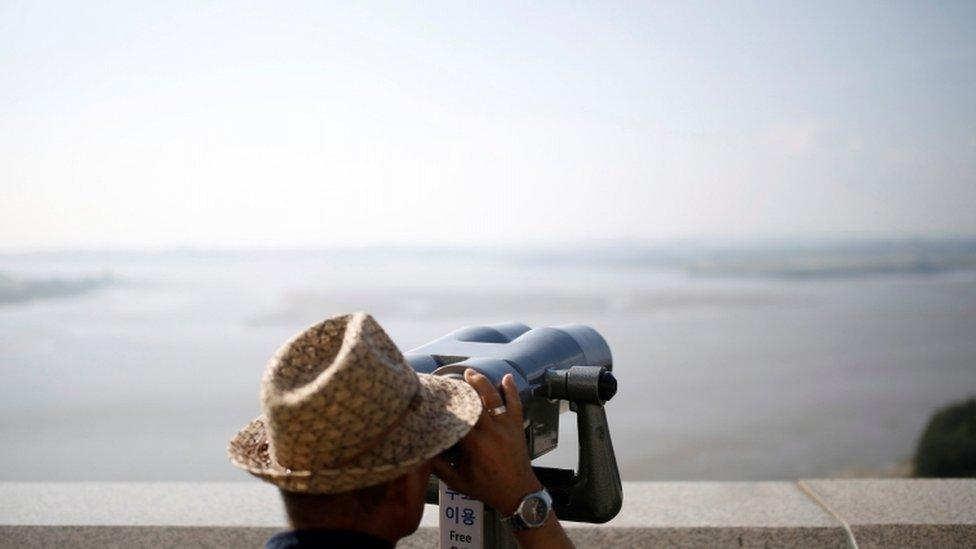
The North-South demilitarised zone. The Korean nations are technically still at war
North Korea has carried out what appears to be its largest ever nuclear test, sparking global indignation.
This is the country's fifth test. Why are the North Koreans doing it, and why is it important?
Why now?
Well, there have been some reasons given by the North Koreans themselves - and then there are some that need to be read between the lines:
Officially, it was a demonstration of the "toughest will" of the Korean people to show they can retaliate to an attack by enemies. It was also a show against the "racket of threat and sanctions" that the nation has suffered at the hands of the global community via the UN
Then came the technical reasons - to hone the ability to put nuclear warheads on ballistic missiles (although many experts still doubt this has been effectively achieved)
And finally it was a show of national "dignity", an important concept in North Korea backed up by the fact it came on National Day, a traditional time to show off military muscle
Unstated, but clearly obvious, was anger at US and South Korean plans to install an anti-missile defence system in the South, along with the traditional lambasting of the annual US-South Korea joint military exercises.
Why does it matter?
North Korea is an isolated communist nation run by an unpredictable 32-year-old "supreme leader" with his hands on an unspecified nuclear arsenal and seemingly immune to any global pressure to give it up.
Kim Jong-un's aggression and invective show no sign of abating. If anything they are getting worse. The North's southern neighbour- still technically at war with the North because the 1950-53 conflict ended in an armistice, not a treaty - and Japan are particularly nervous.
The North has also often stated its aim of targeting the US.
What next?
The US and Russia have already indicated that there will be more discussions at the UN. A resolution of condemnation is one course of action, given that no nation on the Security Council is likely to block it.
There have already been five sets of UN sanctions and more may well be on the agenda, such as blocking the export of fuel oil to North Korea, but how effective they would be is unclear.
China's response will be the most important. It has to balance opposition to the North's nuclear actions with a desire not to destabilise its volatile neighbour.
- Published9 September 2016
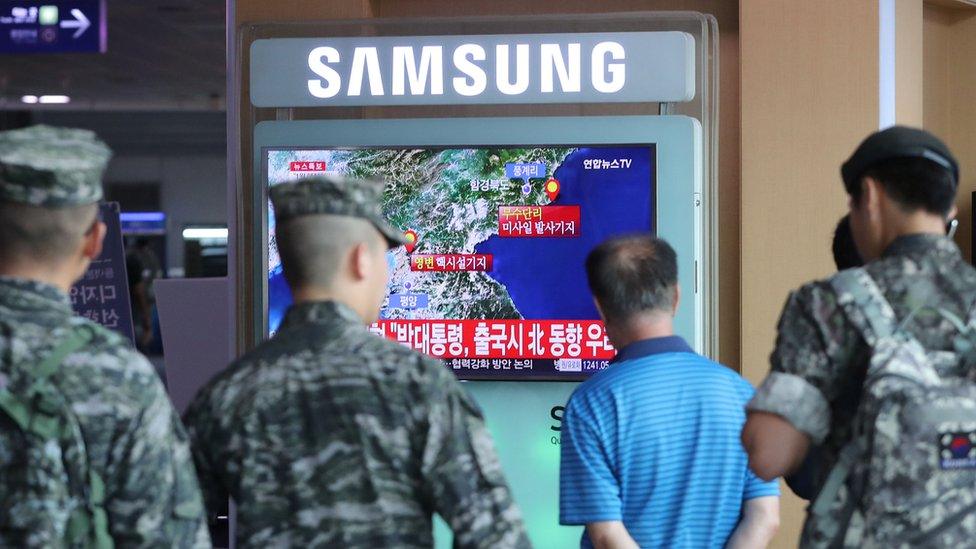
- Published10 August 2017
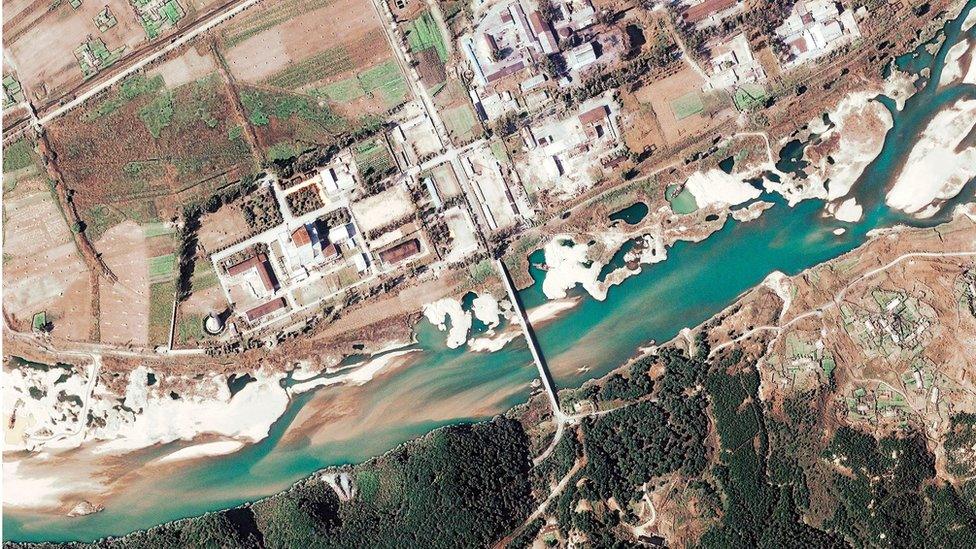
- Published3 September 2017
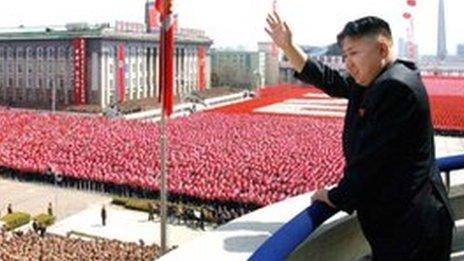
- Published18 April 2016
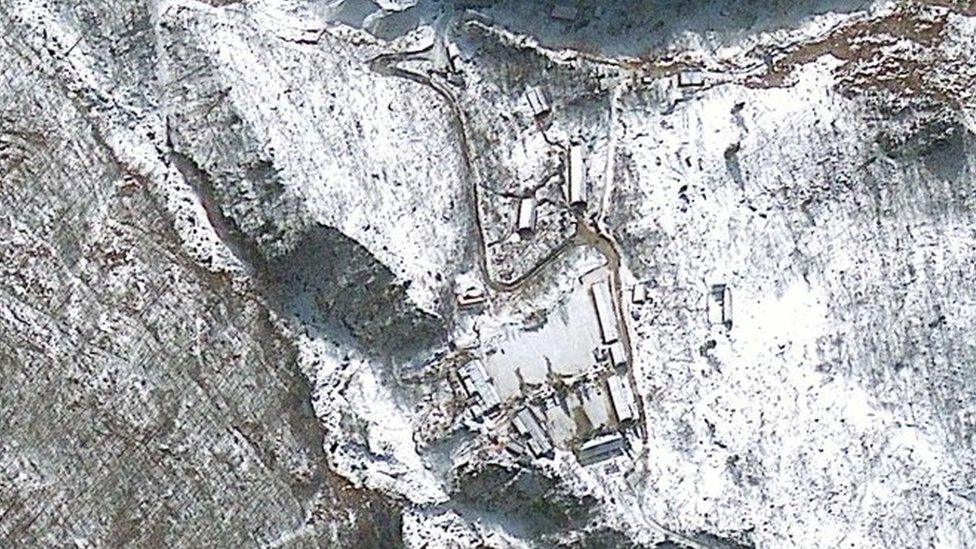
- Published9 September 2016
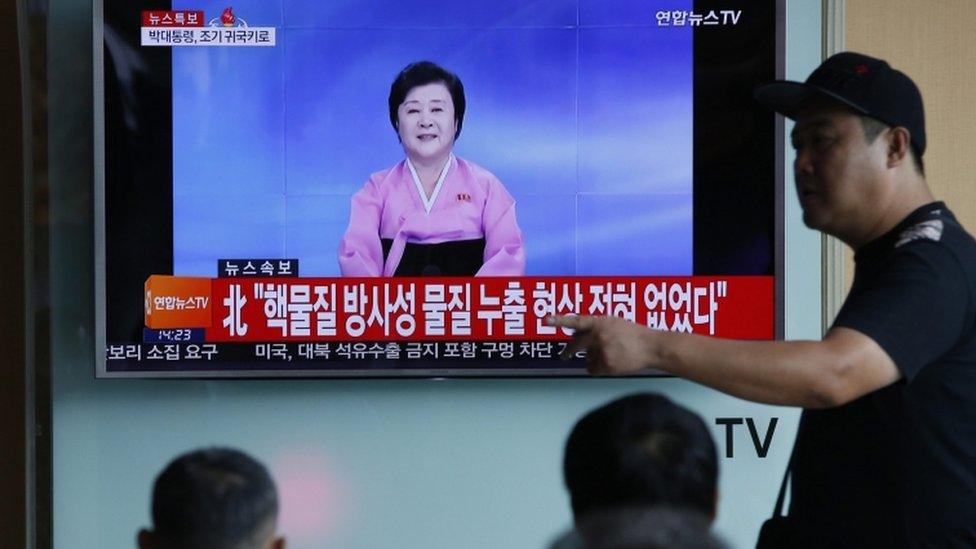
- Published10 December 2015
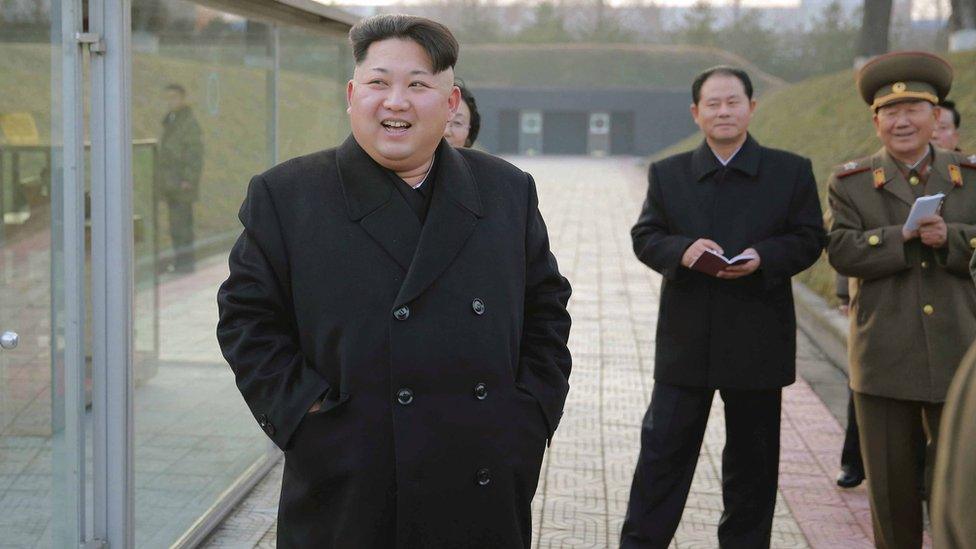
- Published11 September 2023
